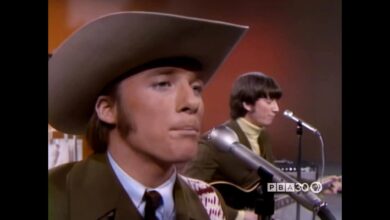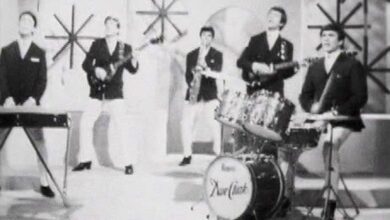Little Richard’s Electrifying Legacy: The Story Behind ‘Tutti Frutti’ and the Birth of Rock ‘n’ Roll
In the vibrant tapestry of 1950s America, a young Richard Wayne Penniman, known to the world as Little Richard, was poised to leave an indelible mark on music history. Born on December 5, 1932, in Macon, Georgia, Richard was the third of twelve children. His early years were steeped in the soulful sounds of gospel music, nurtured by his involvement in the local church choir. This foundation would later influence his dynamic performance style, blending spiritual fervor with secular rhythms.
As a teenager, Richard’s flamboyant personality and burgeoning sexuality led to tensions at home. At the age of 13, he was asked to leave, prompting him to seek solace and expression in music. He began performing in local nightclubs, where his energetic piano playing and charismatic stage presence garnered attention. These early experiences honed his craft, setting the stage for his future as a pioneer of rock and roll.
In 1951, at the age of 19, Richard secured his first recording contract with RCA Records. Despite his enthusiasm, the initial recordings failed to capture the raw energy of his live performances, resulting in modest commercial success. Undeterred, Richard continued to evolve his sound, drawing inspiration from rhythm and blues artists and infusing his music with a distinctive flair that was uniquely his own.
A pivotal moment arrived in 1955 when Richard sent a demo to Specialty Records. Impressed by his potential, the label arranged a recording session at J&M Studios in New Orleans, under the guidance of producer Robert “Bumps” Blackwell. The initial recordings, however, lacked the spark they were seeking. Frustration mounted until, during a break at the Dew Drop Inn, Richard unleashed an impromptu performance of a risqué song he had been performing live, titled “Tutti Frutti.”
Recognizing the song’s potential but aware of its explicit content, Blackwell enlisted songwriter Dorothy LaBostrie to sanitize the lyrics for mainstream audiences. The result was a high-octane track that retained its infectious energy while becoming radio-friendly. Recorded in just three takes, “Tutti Frutti” was released in November 1955, catapulting Richard to fame. The song’s opening cry, “A-wop-bop-a-loo-mop-a-lop-bam-boom!” became an anthem of the era, encapsulating the rebellious spirit of rock and roll.
“Tutti Frutti” soared to number two on Billboard’s Rhythm and Blues Best-Sellers chart and crossed over to the pop charts, a testament to its broad appeal. Its success was not just a personal triumph for Richard but also a cultural milestone, challenging racial barriers in the music industry and paving the way for future African American artists.
The song’s impact was further amplified by Richard’s electrifying performances. His dynamic piano playing, combined with his flamboyant attire and uninhibited stage antics, captivated audiences. He often performed in sequined suits, with his signature pompadour hairstyle, exuding a charisma that was both alluring and groundbreaking. This persona challenged societal norms and redefined what it meant to be a rock and roll star.
Following the success of “Tutti Frutti,” Richard released a string of hits that solidified his place in music history. Songs like “Long Tall Sally,” “Rip It Up,” and “Good Golly, Miss Molly” showcased his ability to blend infectious melodies with exuberant performances. Each track was a testament to his innovative spirit, pushing the boundaries of the genre and inspiring countless musicians.
Despite his meteoric rise, Richard’s journey was fraught with challenges. The pressures of fame, coupled with internal conflicts about his sexuality and religious beliefs, led him to abandon rock and roll at the height of his career in 1957. He enrolled in Bible college and became a minister, marking a significant shift in his life. However, the pull of music remained strong, and he made several comebacks over the ensuing decades, each time reaffirming his status as a rock and roll icon.
Little Richard’s influence on music and culture is immeasurable. His pioneering efforts laid the groundwork for future generations of artists, and his flamboyant style challenged societal norms, contributing to the broader cultural shifts of the 1960s and beyond. His legacy is evident in the works of artists across genres, from rock to pop to soul.
Reflecting on “Tutti Frutti,” it’s clear that the song was more than just a hit; it was a cultural phenomenon. It encapsulated the energy and excitement of a transformative era in music history. The song’s enduring popularity is a testament to its timeless appeal and Richard’s unparalleled talent.
In his later years, Richard received numerous accolades, including inductions into the Rock and Roll Hall of Fame and the Songwriters Hall of Fame. These honors recognized not only his contributions to music but also his role in shaping the cultural landscape of the 20th century.
Little Richard passed away on May 9, 2020, leaving behind a legacy that continues to inspire. His life and career were a testament to the power of authenticity and the enduring impact of music. “Tutti Frutti” remains a vibrant reminder of his genius, a song that continues to resonate with audiences around the world.



